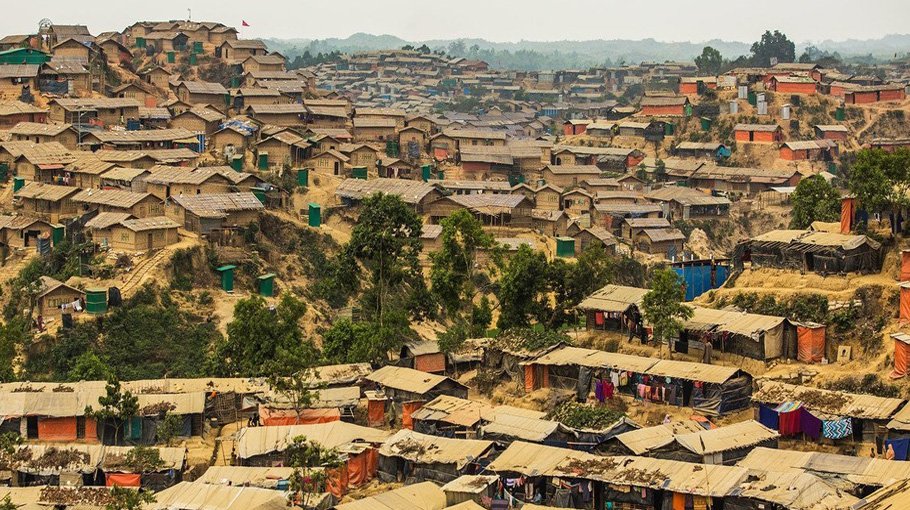UN continues to work for Rohingya return

New UN Resident Coordinator Gwyn Lewis in Bangladesh said on Tuesday that they would continue their efforts to create conditions that are conducive for Rohingya’s return to Myanmar.
“The Rohingya must be able to go back home, in safety and dignity,” she said while interacting with the diplomatic correspondents in Dhaka at the Jatiya Press Club.
The Diplomatic Correspondents Association, Bangladesh (DCAB) organised the event under its flagship ‘DCAB Talk’. DCAB President Rezaul Karim Lotus and General Secretary AKM Moinuddin also spoke at the event.
Bangladesh is hosting over 1.1 million Rohingyas in Cox’s Bazar. Most of them fled ‘ethnic cleansing’ in the Rakhine state in 2017. Bangladesh is working on their safe and voluntary return.
“Despite the efforts made, no agreement has been reached in return, but we will continue to work on that. There is no way of determining how long repatriation might take, only that safe and voluntary repatriation will continue to be a priority,” the UN official said.
“In the meantime, the UN and our partners are committed to continuing to provide humanitarian support to the Rohingya,” she said.
She also spoke on Bangladesh’s engagement with the UN agencies, particularly appreciated the role in peacekeeping operations.
Replying to a question, she said the UN can engage in the upcoming general election process only when the government invites them or the Security Council tells them to do so.
She said the world is facing the “Perfect Storm” - the war in Ukraine, food and fuel price crisis, climate change, increasing polarisation.
“Every country is facing challenges and those challenges are enormous and overwhelming. There is a lack of trust within and between countries, there is instability, geopolitical divides are increasing, and all the while the world is still recovering from Covid.
As a result, the SDGs are unfortunately going into reverse; and therefore joint and coordinated efforts will be needed to make a change.”
She said the UN across the globe is working to promote much-needed transformation, whether it is facilitating the Black Sea Initiative to bring down global food prices, or providing important policy briefs such on the health effects of climate change that can help inform decision making or simply assisting at the country level as we do in Bangladesh by leveraging technical expertise such as on LDC graduation or providing support after natural disasters or to refugees.
“The UN in Bangladesh has described in what we call the UN’s Sustainable Development Cooperation Framework how we will work together across the different agencies and mandates to make that change happen,” she said.
She said climate action is on top of the UN agenda in Bangladesh. Climate change is also impacting Bangladesh’s economy.
“In COP 27, adaptation and loss and damage need not only to be on the table, but serious steps need to be taken to provide the most impacted counties, such as Bangladesh global financial support and technology.”
“As the UN we plan to further work on supporting the government to implement the national adaptation plan and the other policy frameworks such as the Delta plan and the Mujib climate prosperity action plan.”
She said before the Coronavirus hit the country, Bangladesh had been advancing at pace to qualify for graduation. Although the pandemic has been disruptive, the economy remained on a positive track. However, the current food and fuel crisis generated by the war is also creating pressures and uncertainty, including for the markets for Bangladeshi goods overseas.
“In this global climate, although there are benefits to graduation there are also risks. Graduation will enhance the confidence of the country in dealing with the international financial bodies, improve Bangladesh’s credit rating and attract higher foreign direct investment flow; however, graduation will also affect certain preferential treatments in trade, subsidy to agriculture and access to some LDC-specific funds.”
“The risks need to be mitigated and this is where I hope that the UN’s technical support can be useful,” she said.
“The UN is working to support the government in the development of a Smooth Transition Strategy to do what is possible to make the transition as seamless as possible.”
At present Bangladesh is the largest contributor of uniformed personnel in UN peacekeeping operations. Over 6,800 Bangladeshi military and police personnel are currently deployed in the UN operations in the Central African Republic, the Democratic Republic of the Congo, Lebanon, Mali, South Sudan, and the Western Sahara.
Among them are more than 500 women peacekeepers who are currently deployed in various operations.
“Bangladesh peacekeepers continue to play a role in bringing hope, confidence and solace to many war and conflict-affected communities around the world,” said the UN resident coordinator.
She said the UN would continue to strive to support the people of Bangladesh in achieving the SDGs. “There is no choice but to succeed.”



